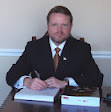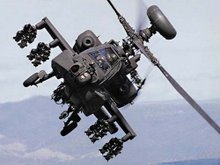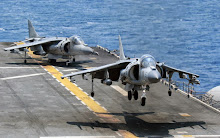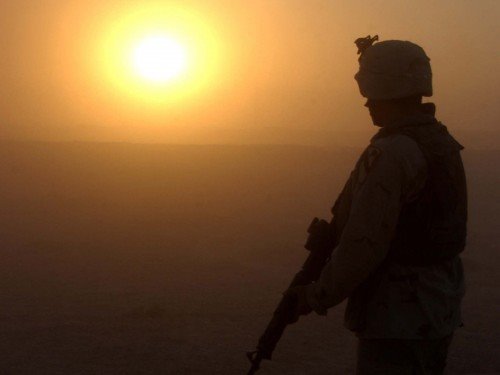Prosecutor Apologizes 12 Years After Innocent Man Convicted of Rape
In yet another example of why defense attorneys do what we do, Ronald Taylor was released from prison after serving 12 years for a crime (rape) he didn’t commit.
The exoneration stems from the exposure of serious problems within the Houston crime lab. According to a story on http://www.cnn.com/, an inspector, who formerly worked for the U.S. Justice Department, cited hundreds of “serious and pervasive” flaws in the forensic cases handled by the Houston crime lab.
Mr. Taylor was convicted of rape in 1995 and sentenced to 60 years in prison. The victim picked Mr. Taylor out of a lineup, but apparently admitted she only caught a glimpse of her attacker's face. During his trial, an analyst from the Houston crime lab testified that no body fluids were found on the victim’s bed sheet.
This summer, however, the Innocence Project (http://www.innocenceproject.org/) paid to have another crime lab retest the bed sheet in question. Semen was found by the new lab, and it matched the DNA of a man already in prison.
In response to this new evidence of Mr. Taylor’s innocence, and the failure of the Houston crime lab, the Harris County District Attorney, Chuck Rosenthal, apologized to Mr. Taylor in court prior to his release from prison, and several council members echoed his sentiments. The full CNN story can be accessed at:
http://www.cnn.com/2007/US/law/10/10/houston.lab.ap/index.html
The full Innocence Project story about the case can be accessed at:
http://www.innocenceproject.org/Content/928.php
For some other blog posts about the role of a criminal defense lawyer and the importance of this function to the criminal justice system, please see:
http://militaryadvocate.blogspot.com/2007/07/value-of-good-defense-lawyer-you-might.html
http://militaryadvocate.blogspot.com/2007/06/cost-of-overzealous-prosecution.html
http://militaryadvocate.blogspot.com/2007/04/200th-dna-exoneration-barry-scheck-and.html
http://militaryadvocate.blogspot.com/2007/04/how-can-you-defend-them-duke-lacrosse.html
Another job well done by the Innocence Project!
By: Attorney Richard V. Stevens
Civilian criminal defense lawyer and military defense lawyer
Military Defense Law Offices of Richard V. Stevens, PC
http://www.militaryadvocate.com
Blog postscript: Attorney Frank Spinner and I (attorney Richard Stevens) are former active duty military lawyers (JAG). Our perspectives and advice, therefore, are based upon our experience as military defense lawyers and as civilian criminal defense lawyers practicing exclusively in the area of military law. This blog addresses issues in military law, military justice, military discipline, military defense, court-martial practice, the Uniform Code of Military Justice (UCMJ) and other military and/or legal topics. Nothing posted in this blog should be substituted for legal advice in any particular case. If you seek legal advice for a particular case, please contact The Law Offices of Richard V. Stevens & The Law Office of Frank J. Spinner for a free consultation.
Friday, October 12, 2007
Wednesday, October 10, 2007
Charitable Organizations Established to Provide Financial Support for Families of Military Members Facing Prosecution for Alleged Crimes Committed in Middle East Combat Operations
Our law firm has recently had the privilege of meeting various members of charitable organizations established to provide financial support for families of military members who are facing prosecution for alleged war crimes and other crimes committed in combat operations in the Middle East.
As civilian defense attorneys who represent military members facing courts-martial and other adverse actions, we know how important it is for our military members to have strong defense legal representation against the governments’ allegations and resources. We also recognize the reality that hiring a civilian defense lawyer is a serious financial commitment.
The organizations identified below were established to raise and provide money toward military defense fees and expenses in cases arising out of combat in Afghanistan and Iraq. We are not members of any of these organizations; we simply provide their links as references for any family seeking such defense attorney funding assistance. Each organization will describe how funds are raised, what criteria must be satisfied to be eligible for any money, etc. Here are some links:
http://www.militarycombatdefensefund.com/
http://www.marinedefensefund.com/index.html
http://www.warrior-fund.org/
http://www.unitedpatriots.org/
The United American Patriots, for example, rely heavily on the support of public donations and participation in fund-raising initiatives. They have little overhead, so a high percentage of the funds they receive go directly toward their stated purpose.
If you or your family member is facing the uncertainty of a military trial or other adverse military action, you should research what organizations may exist that could assist in financing a defense that includes civilian counsel. In such a critical time in a military member’s life, it is comforting to know that organizations do exist that will help pay for strong civilian defense attorney representation.
By: Attorney Richard V. Stevens
Civilian criminal defense lawyer and military defense lawyer
Military Defense Law Offices of Richard V. Stevens, PC
http://www.militaryadvocate.com
Blog postscript: Attorney Frank Spinner and I (attorney Richard Stevens) are former active duty military lawyers (JAG). Our perspectives and advice, therefore, are based upon our experience as military defense lawyers and as civilian criminal defense lawyers practicing exclusively in the area of military law. This blog addresses issues in military law, military justice, military discipline, military defense, court-martial practice, the Uniform Code of Military Justice (UCMJ) and other military and/or legal topics. Nothing posted in this blog should be substituted for legal advice in any particular case. If you seek legal advice for a particular case, please contact The Law Offices of Richard V. Stevens & The Law Office of Frank J. Spinner for a free consultation.
Our law firm has recently had the privilege of meeting various members of charitable organizations established to provide financial support for families of military members who are facing prosecution for alleged war crimes and other crimes committed in combat operations in the Middle East.
As civilian defense attorneys who represent military members facing courts-martial and other adverse actions, we know how important it is for our military members to have strong defense legal representation against the governments’ allegations and resources. We also recognize the reality that hiring a civilian defense lawyer is a serious financial commitment.
The organizations identified below were established to raise and provide money toward military defense fees and expenses in cases arising out of combat in Afghanistan and Iraq. We are not members of any of these organizations; we simply provide their links as references for any family seeking such defense attorney funding assistance. Each organization will describe how funds are raised, what criteria must be satisfied to be eligible for any money, etc. Here are some links:
http://www.militarycombatdefensefund.com/
http://www.marinedefensefund.com/index.html
http://www.warrior-fund.org/
http://www.unitedpatriots.org/
The United American Patriots, for example, rely heavily on the support of public donations and participation in fund-raising initiatives. They have little overhead, so a high percentage of the funds they receive go directly toward their stated purpose.
If you or your family member is facing the uncertainty of a military trial or other adverse military action, you should research what organizations may exist that could assist in financing a defense that includes civilian counsel. In such a critical time in a military member’s life, it is comforting to know that organizations do exist that will help pay for strong civilian defense attorney representation.
By: Attorney Richard V. Stevens
Civilian criminal defense lawyer and military defense lawyer
Military Defense Law Offices of Richard V. Stevens, PC
http://www.militaryadvocate.com
Blog postscript: Attorney Frank Spinner and I (attorney Richard Stevens) are former active duty military lawyers (JAG). Our perspectives and advice, therefore, are based upon our experience as military defense lawyers and as civilian criminal defense lawyers practicing exclusively in the area of military law. This blog addresses issues in military law, military justice, military discipline, military defense, court-martial practice, the Uniform Code of Military Justice (UCMJ) and other military and/or legal topics. Nothing posted in this blog should be substituted for legal advice in any particular case. If you seek legal advice for a particular case, please contact The Law Offices of Richard V. Stevens & The Law Office of Frank J. Spinner for a free consultation.
Monday, October 08, 2007
Chief Prosecutor for Guantanamo Bay War-Crimes/Military Commission Detainee Cases Quits?
Below is an article that recently appeared in the NY Times, written by William Glaberson. It can be found at:
http://www.nytimes.com/2007/10/06/us/nationalspecial3/06gitmo.html?_r=1&oref=slogin
October 6, 2007
War-Crimes Prosecutor Quits in Pentagon Clash
By WILLIAM GLABERSON
In the latest disruption of the Bush administration’s plan to try detainees at Guantánamo Bay, Cuba, for war crimes, the chief military prosecutor on the project stepped down yesterday after a dispute with a Pentagon official.
It was not clear what effect the departure would have on the problem-plagued effort to charge and try detainees.
The prosecutor, Col. Morris D. Davis of the Air Force, was to leave his position immediately, a Defense Department spokeswoman said. But the spokeswoman, Cynthia O. Smith, said officials were working to minimize interruption in the work of the prosecution office, which includes military lawyers supplemented by civilian federal prosecutors.
“The department is taking measures to ensure a prompt and orderly transition to another chief prosecutor without interrupting the key mission of prosecuting war crimes via military commissions,” Ms. Smith said.
The Wall Street Journal reported yesterday that Colonel Davis would resign.
The Pentagon’s system of prosecuting suspects has been beset by practical problems and legal disputes that have reached the Supreme Court. As a result, more than five years after the first terror suspects arrived at Guantánamo Bay, only one detainee’s war-crimes case has been completed, and that was through a plea agreement.
Prosecutors have said they might eventually file charges against as many as 80 of the 330 detainees being held at Guantánamo. Those include so-called high value detainees, 14 men the administration has said include dangerous terrorists who had previously been held in secret C.I.A. prisons.
Officials have said the prosecutors are working on charges against some of those men, including Khalid Shaikh Mohammed, who has said he was the mastermind of the terrorist attacks of Sept. 11, 2001.
Colonel Davis, a career military lawyer, had been in a bitter dispute with Brig. Gen. Thomas W. Hartmann, who was appointed this summer to a top post in the Pentagon Office of Military Commissions, which supervises the war crimes trial system.
General Hartmann, an Air Force reserve officer who worked as a corporate lawyer until recently, was appointed this summer as the legal adviser to Susan J. Crawford, a former military appeals judge who is the convening authority, a military official who has extensive powers under the military commission law passed by Congress in 2006.
Among other powers, under the law, the convening authority can approve or reject war-crimes charges, make plea deals with detainees and reduce sentences.
People involved in the prosecutions, who spoke on condition of anonymity, have said that General Hartmann challenged Colonel Davis’s authority in August and pressed the prosecutors who worked for Colonel Davis to produce new charges against detainees quickly.
They said he also pushed the prosecutors to frame cases with bold terrorism accusations that would draw public attention to the military commission process, which has been one of the central legal strategies of the Bush administration. In some cases the prosecutors are expected to seek the death penalty.
Through a spokeswoman, General Hartmann declined comment yesterday.
Colonel Davis filed a complaint against General Hartmann with Pentagon officials this fall saying that the general had exceeded his authority and created a conflict of interest by asserting control over the prosecutor’s office. Colonel Davis said it would be improper for General Hartmann to assess the adequacy of cases filed by prosecutors if the general had been involved in the decision to file those cases.
In a statement last week, Colonel Davis said the issue posed a threat to the integrity of the war-crimes process. “For the greater good, Brigadier General Hartmann and I should both resign and walk away or higher authority should relieve us of our duties,” the statement said.
A military official said yesterday that Pentagon officials had sided with General Hartmann in the dispute.
Yesterday, Colonel Davis said he could not discuss the developments. “I’m under direct orders,” he said, “not to comment with the media about the reasons for my resignation or military commissions.”
Gregory S. McNeal, an assistant professor at the Dickinson School of Law at Pennsylvania State University, said the effort to begin war-crimes trials would probably continue. But Mr. McNeal, who has been a consultant to the military prosecutors, said the questions Colonel Davis raised would be exploited by defense lawyers.
“The last thing the prosecution needs is officials influencing the prosecutions,” he said.
Critics of the administration have argued that the effort to design a military commission system for foreign terror suspects is intended to circumvent the legal protections that detainees would receive if they were charged in civilian courts. Some of those critics said yesterday that the dispute underscored their concerns.
“This is further evidence that the military commission process is completely unraveling,” said J. Wells Dixon, a detainees’ lawyer at the Center for Constitutional Rights in New York.
“That is endemic,” Mr. Dixon added, “to any system that is made up as you go along.”
By: Attorney Richard V. Stevens
Civilian criminal defense lawyer and military defense lawyer
Military Defense Law Offices of Richard V. Stevens, PC
http://www.militaryadvocate.com
Blog postscript: Attorney Frank Spinner and I (attorney Richard Stevens) are former active duty military lawyers (JAG). Our perspectives and advice, therefore, are based upon our experience as military defense lawyers and as civilian criminal defense lawyers practicing exclusively in the area of military law. This blog addresses issues in military law, military justice, military discipline, military defense, court-martial practice, the Uniform Code of Military Justice (UCMJ) and other military and/or legal topics. Nothing posted in this blog should be substituted for legal advice in any particular case. If you seek legal advice for a particular case, please contact The Law Offices of Richard V. Stevens & The Law Office of Frank J. Spinner for a free consultation.
Below is an article that recently appeared in the NY Times, written by William Glaberson. It can be found at:
http://www.nytimes.com/2007/10/06/us/nationalspecial3/06gitmo.html?_r=1&oref=slogin
October 6, 2007
War-Crimes Prosecutor Quits in Pentagon Clash
By WILLIAM GLABERSON
In the latest disruption of the Bush administration’s plan to try detainees at Guantánamo Bay, Cuba, for war crimes, the chief military prosecutor on the project stepped down yesterday after a dispute with a Pentagon official.
It was not clear what effect the departure would have on the problem-plagued effort to charge and try detainees.
The prosecutor, Col. Morris D. Davis of the Air Force, was to leave his position immediately, a Defense Department spokeswoman said. But the spokeswoman, Cynthia O. Smith, said officials were working to minimize interruption in the work of the prosecution office, which includes military lawyers supplemented by civilian federal prosecutors.
“The department is taking measures to ensure a prompt and orderly transition to another chief prosecutor without interrupting the key mission of prosecuting war crimes via military commissions,” Ms. Smith said.
The Wall Street Journal reported yesterday that Colonel Davis would resign.
The Pentagon’s system of prosecuting suspects has been beset by practical problems and legal disputes that have reached the Supreme Court. As a result, more than five years after the first terror suspects arrived at Guantánamo Bay, only one detainee’s war-crimes case has been completed, and that was through a plea agreement.
Prosecutors have said they might eventually file charges against as many as 80 of the 330 detainees being held at Guantánamo. Those include so-called high value detainees, 14 men the administration has said include dangerous terrorists who had previously been held in secret C.I.A. prisons.
Officials have said the prosecutors are working on charges against some of those men, including Khalid Shaikh Mohammed, who has said he was the mastermind of the terrorist attacks of Sept. 11, 2001.
Colonel Davis, a career military lawyer, had been in a bitter dispute with Brig. Gen. Thomas W. Hartmann, who was appointed this summer to a top post in the Pentagon Office of Military Commissions, which supervises the war crimes trial system.
General Hartmann, an Air Force reserve officer who worked as a corporate lawyer until recently, was appointed this summer as the legal adviser to Susan J. Crawford, a former military appeals judge who is the convening authority, a military official who has extensive powers under the military commission law passed by Congress in 2006.
Among other powers, under the law, the convening authority can approve or reject war-crimes charges, make plea deals with detainees and reduce sentences.
People involved in the prosecutions, who spoke on condition of anonymity, have said that General Hartmann challenged Colonel Davis’s authority in August and pressed the prosecutors who worked for Colonel Davis to produce new charges against detainees quickly.
They said he also pushed the prosecutors to frame cases with bold terrorism accusations that would draw public attention to the military commission process, which has been one of the central legal strategies of the Bush administration. In some cases the prosecutors are expected to seek the death penalty.
Through a spokeswoman, General Hartmann declined comment yesterday.
Colonel Davis filed a complaint against General Hartmann with Pentagon officials this fall saying that the general had exceeded his authority and created a conflict of interest by asserting control over the prosecutor’s office. Colonel Davis said it would be improper for General Hartmann to assess the adequacy of cases filed by prosecutors if the general had been involved in the decision to file those cases.
In a statement last week, Colonel Davis said the issue posed a threat to the integrity of the war-crimes process. “For the greater good, Brigadier General Hartmann and I should both resign and walk away or higher authority should relieve us of our duties,” the statement said.
A military official said yesterday that Pentagon officials had sided with General Hartmann in the dispute.
Yesterday, Colonel Davis said he could not discuss the developments. “I’m under direct orders,” he said, “not to comment with the media about the reasons for my resignation or military commissions.”
Gregory S. McNeal, an assistant professor at the Dickinson School of Law at Pennsylvania State University, said the effort to begin war-crimes trials would probably continue. But Mr. McNeal, who has been a consultant to the military prosecutors, said the questions Colonel Davis raised would be exploited by defense lawyers.
“The last thing the prosecution needs is officials influencing the prosecutions,” he said.
Critics of the administration have argued that the effort to design a military commission system for foreign terror suspects is intended to circumvent the legal protections that detainees would receive if they were charged in civilian courts. Some of those critics said yesterday that the dispute underscored their concerns.
“This is further evidence that the military commission process is completely unraveling,” said J. Wells Dixon, a detainees’ lawyer at the Center for Constitutional Rights in New York.
“That is endemic,” Mr. Dixon added, “to any system that is made up as you go along.”
By: Attorney Richard V. Stevens
Civilian criminal defense lawyer and military defense lawyer
Military Defense Law Offices of Richard V. Stevens, PC
http://www.militaryadvocate.com
Blog postscript: Attorney Frank Spinner and I (attorney Richard Stevens) are former active duty military lawyers (JAG). Our perspectives and advice, therefore, are based upon our experience as military defense lawyers and as civilian criminal defense lawyers practicing exclusively in the area of military law. This blog addresses issues in military law, military justice, military discipline, military defense, court-martial practice, the Uniform Code of Military Justice (UCMJ) and other military and/or legal topics. Nothing posted in this blog should be substituted for legal advice in any particular case. If you seek legal advice for a particular case, please contact The Law Offices of Richard V. Stevens & The Law Office of Frank J. Spinner for a free consultation.
Subscribe to:
Posts (Atom)






















